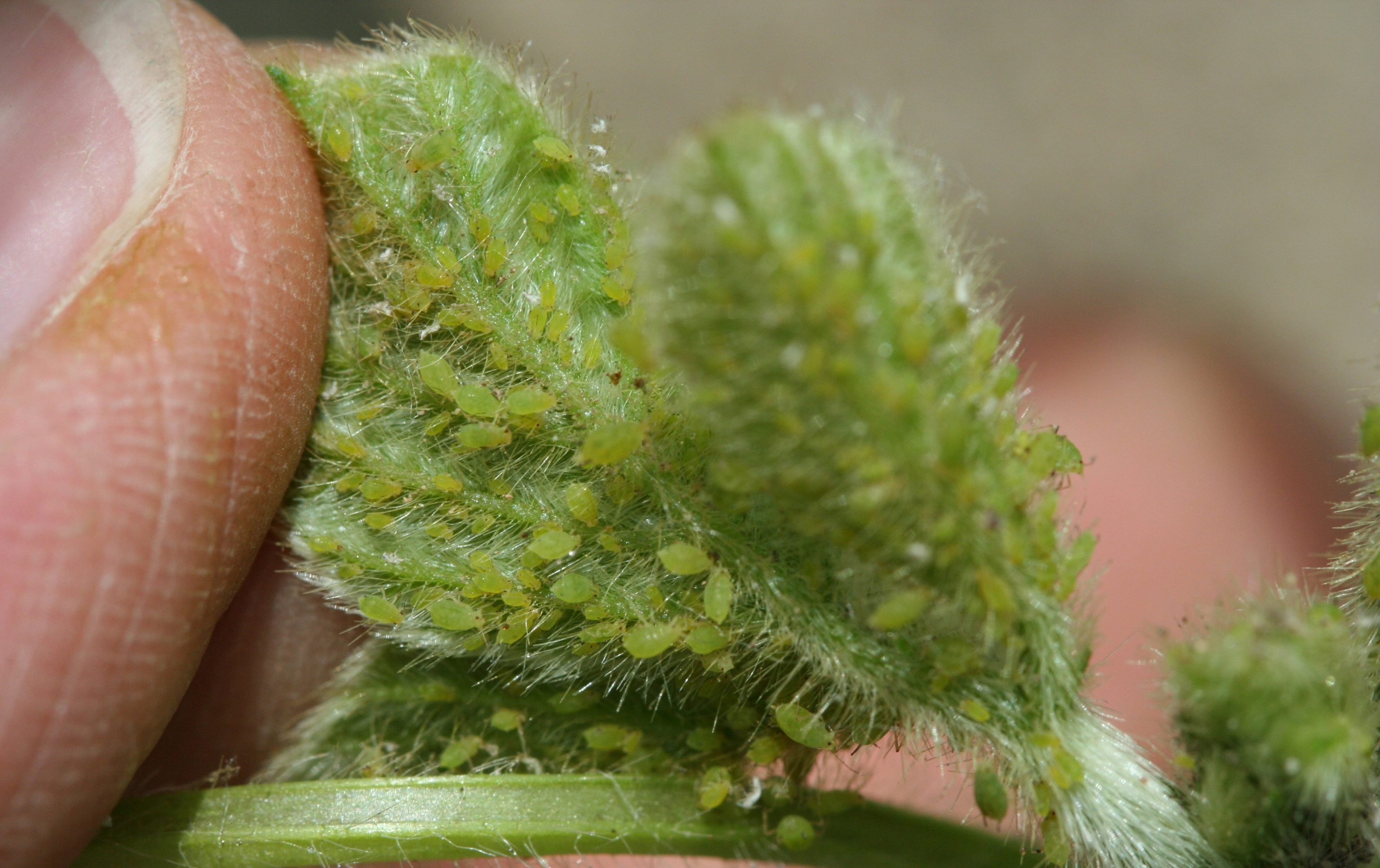We’re thrilled to announce that GEMS is leading a novel 2-year project funded by the Minnesota Invasive Terrestrial Plants and Pests Center (MITPPC) with support from the Minnesota Environment and Natural Resources Trust Fund. "Linking soybean aphid losses to technology investment decisions" a transformative project aimed at developing a flexible, evidence-based, bio-economic evaluation workflow to characterize the long-term, probabilistic extent of soybean aphid damage throughout Minnesota.
Our Mission: A Repeatable and Extensible Pest Risk Assessment Tool to Inform Decision Making
Soybean aphids have emerged as a significant arthropod pest impacting soybeans in North America since 2000. However, a systematic effort to collect, analyze, and report on yield losses caused by this pest in farmers' fields has been notably absent, particularly concerning the longer-term, state-wide perspectives that are crucial for strategic R&D and policy decisions.
Our goal is to comprehensively assess the risk posed by the soybean aphid for the state of Minnesota to help inform decisions regarding research investment and pest mitigation strategies. Our evaluation framework breaks new ground by factoring in both the spatially- and temporally-variable pest risk elements that many prior efforts have overlooked. Our flexible evaluation approach is designed to deal with either data-poor or data-rich scenarios while taking into account the geographical extent, frequency, and severity of damage to undertake regional and meso-scale risk assessments.
Our project, 'Linking Soybean Aphid Losses to Technology Investment Decisions,' is breaking new ground by developing a flexible, evidence-based framework for estimating crop losses that account for the dynamic nature of pest risks. Through interdisciplinary collaboration, we're forging a path to innovative solutions in agriculture.
-Yuan Chai
Forward-Looking Impact: Shaping Tomorrow's Risk Management Strategies
This project entails close collaboration between the GEMS Informatics Center (PI Dr. Philip Pardey and co-PI Dr. Yuan Chai) and the Department of Entomology (co-PI Dr. Robert Koch), leveraging a spectrum of expertise in pest, crop, and socio-economics. With cutting-edge data and analytics support, we're developing a data-driven, replicable, and extensible framework for meso-scale ex-ante pest risk evaluation of soybean aphids. The project's impact stretches far beyond the laboratory, resonating with stakeholders invested in the field of crop pest management. Our findings will empower MITPPC, state government agencies, academic units, and crop commodity groups to strategically allocate resources for targeted investments in pest management strategies. Moreover, our approach is designed to be extendable to a wide range of crop pest and disease challenges in Minnesota and beyond.
Join Us on this Journey!
Join us on this transformative journey, where our collaborative effort is poised to shape the future of agricultural resilience and resource optimization decisions. Stay tuned for updates on findings, methodologies, and the broader implications of our work by signing up for the MITPPC newsletter and by visiting our project page. Together, let's revolutionize the landscape of agricultural research and pest management! 🌱💡
Photo Attribution: Christina DiFonzo, Michigan State University / © Bugwood.org
